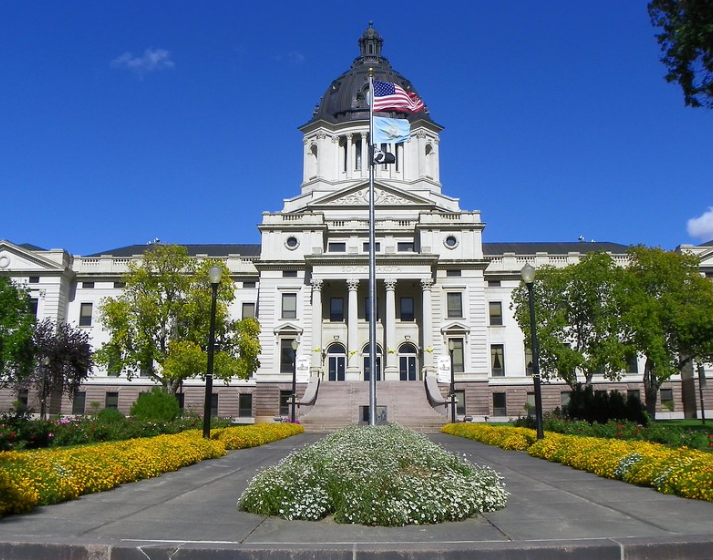South Dakota’s $66 million medical marijuana industry is siding with law enforcement in a push to curb hemp-based THC products, arguing that unregulated access is cutting into patient numbers and threatening its survival.
The latest move comes after a sting operation by Pennington County Sheriff’s Office targeted smoke shops and convenience stores in Rapid City selling hemp-derived THC products, sparking a heated debate between state regulators, law enforcement, and cannabis businesses.
Hemp Products Under the Microscope
Eight stores in Rapid City became the focus of a sting, with officers purchasing hemp-derived THC products marketed as legal highs. The products, often derived from Delta-8 THC or chemically altered cannabinoids, have surged in popularity nationwide.
Law enforcement has argued these items fall into a legal grey zone, creating confusion for both consumers and businesses. Sheriff officials say many products are potent, intoxicating, and hard to differentiate from regulated marijuana.
It’s not a new problem, but it’s growing fast. And in South Dakota, with its small medical marijuana footprint, the stakes feel higher.

Why the Industry Feels Squeezed
Jeremiah Murphy, a lobbyist with the Cannabis Industry Association of South Dakota, said the state’s fledgling medical marijuana industry is already fragile. Hemp-derived products, he added, are undermining patient enrollment.
There are currently only 14,000 registered medical marijuana patients across the state. That number is modest compared to neighbouring states with similar populations. Advocates fear that with easy access to hemp-based alternatives, fewer patients will see a need to apply for medical cards.
“The numbers are already thin,” Murphy told lawmakers this week. “If hemp products keep expanding, the medical system could shrink further.”
The Numbers Behind the Market
South Dakota’s medical marijuana industry is estimated at $66 million. While respectable for a conservative state, the figure pales compared to states with broader access.
Here’s a quick look at the numbers:
| State | Estimated Market Value | Registered Patients |
|---|---|---|
| South Dakota | $66 million | ~14,000 |
| Montana | $270 million | ~39,000 |
| North Dakota | $20 million | ~9,000 |
The comparison shows how South Dakota’s market sits in the middle — bigger than North Dakota, but dwarfed by Montana.
Industry voices argue hemp threatens to drag South Dakota closer to the smaller end of that scale.
Hemp’s Legal Loophole
So why is hemp still everywhere? It comes down to federal law. The 2018 Farm Bill legalised hemp with less than 0.3% Delta-9 THC. That opened the door to new cannabinoids like Delta-8 THC, often synthesised in labs and sold over the counter.
For consumers, it means walk-in access without a doctor’s visit, paperwork, or fees. For businesses, it’s a profitable loophole. But for South Dakota’s licensed dispensaries, it’s competition without the same regulatory costs.
One industry leader described it as “trying to run a restaurant while food trucks are giving away meals for free.”
Lawmakers Caught in the Middle
State lawmakers face pressure from both sides. Hemp supporters argue it boosts small businesses and offers alternatives for consumers. Critics counter that it undermines regulation and makes enforcement messy.
Medical marijuana operators are pushing lawmakers to draw a sharper line. They say without stronger controls, the medical programme could stagnate.
For now, committees are listening but no new laws have been passed. The debate has already spilled into public hearings, with strong opinions voiced by parents, patients, and shop owners.
What Comes Next for South Dakota
The sheriff’s sting may be just the start. Lawmakers will likely face proposals in the next session aimed at tightening hemp rules. Whether they pass is another question.
Advocates say the state has a choice: protect its small medical market or risk letting it shrink further. For patients, it means weighing the cost and convenience of hemp against the stability of a medical card.
One thing is clear — the fight between marijuana and hemp in South Dakota is far from over.
